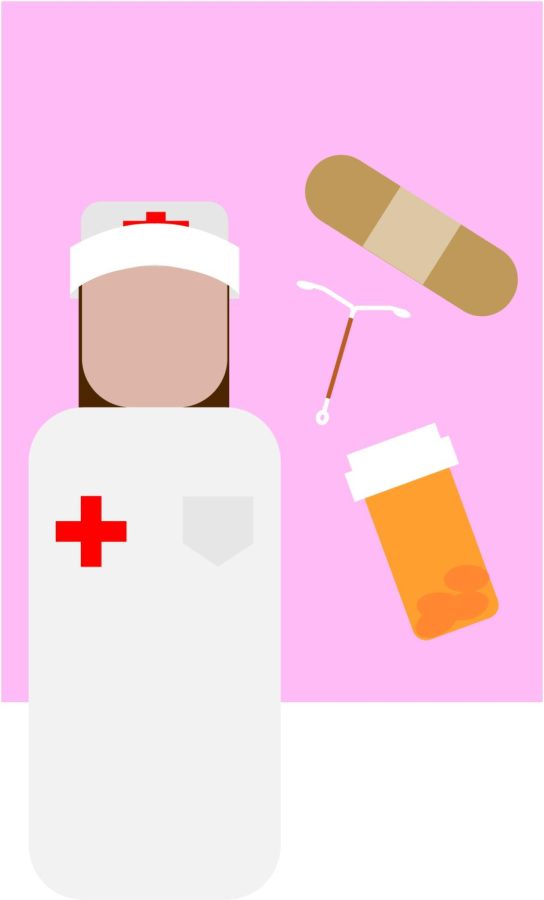Since 2000, Utah has seen a 291% increase in STDs, the second-highest rate in the country. Utah is one of only three states with an opt-in requirement for sex education in schools. If opted into, sex education is abstinence-based and not required to cover forms of birth control or STD prevention.
Utah’s K-12 education sets a precedent of fostering stigma, shame and secrecy around sex. Upon reaching the college level, Utah students must actively work to combat and unlearn this.
Our campus offers a variety of valuable sexual health resources. They are free, discreet, reliable and under-utilized. We must all do our part in talking openly, honestly and without judgment about sex. Destigmatizing sexual health and utilizing our resources is essential for the safety of our entire community.
Attitudes About Sex
Utah is reputed to be notoriously sexually conservative. This is seen in the actions of our legislators, like Rep. Jeff Stenquist, who has repeatedly proposed bills aiming to ban discussions of sexuality in schools. It is also seen in various groups storming the Utah Board of Education to protest teachers’ ability to answer questions about sex in class.
The religious influence here is impossible to ignore. Around 42% of Utahns today identify as Mormon — historically, that number was much higher. Just four years ago, it was 60.68%.
The Church of Jesus Christ of Latter-day Saints said, “Sexual relations are to be limited to marriage between a man and a woman” and “the law of chastity is an eternal law.”
To be clear, any religion’s view on sex is its own. It is not an outsider’s place to critique. The issue here is not the LDS church’s stance on sex but the culture it has resulted in, even among secular Utahns.
Particularly pernicious is the impact these attitudes have on the queer community. The LDS church said, “Sexual relations … between people of the same sex violate one of our Father in Heaven’s most important laws and get in the way of our eternal progress.” These attitudes inform the policy ruling Utah sex education is not required to discuss sexual orientation whatsoever. This omits critical safety information for LGBTQ+ students, which is especially dangerous as HIV rates are rising.
When sex is not talked about and education is not provided, society incurs serious harm.
The U’s Resources
Our university is a bastion of student sexual health resources — you just have to take the time to look.
Most people are unaware that the most common STI symptom is no symptoms at all. Therefore, regular testing and the use of barrier methods are crucial. The Center for Campus Wellness hosts free HIV and STI testing clinics three times a semester for students.
“At the clinics, we also offer some counseling, especially sexual health counseling with peer health educators,” Sabeth Jackson, associate director of prevention education at the Center, said.
Students have an opportunity to talk about anything related to sexual health that they want to know more about.
“Some people have questions about birth control methods. Some people have questions about STI prevention or treatment. Some people have questions about pleasure or communication,” Jackson said. “Those are all things we can talk to them about when they come in for testing.”
The free STI testing clinics are a fantastic resource staffed by knowledgeable, open-minded professionals.
They are also under-attended. Jackson said, “We had our first clinic of the semester last week, and we had 25 students … our biggest clinic we had last year had like 60 students. We would certainly like to expand and be able to see more people.”
To make this possible, the Center is focused on improving its campus presence and spreading the word over social media. Students should be part of this effort. Tell your friends to go get tested.
Another key resource offered by the Center for Campus Wellness is the pleasure pack delivery service. The pleasure packs are free and offer a variety of condoms, optional dental dams and water-based lube. They are delivered throughout campus in discreet pickup locations.
Jackson said the pleasure packs are a key part of “making the healthier choice the easier choice.”
In addition to the Center for Campus Wellness, the Student Health Center offers a variety of sexual health resources. They too have HIV/STI testing and counseling, alongside various means of reproductive healthcare, like pap smears and HPV vaccinations. They offer counseling for contraceptives, which is vital to understanding which methods work for you.
What is most important here is having open, empowered conversations on this topic. Letting the vestiges of abstinence-only sex education or societal stigma stop us from talking freely does us all a disservice.
“A lot of the challenges that college-age students face are around talking about what they do and don’t want, having and respecting boundaries.” Jackson said. “If you know what you want, you’re more likely to be able to advocate for that … if you’ve never thought about it, if you just think you’ll do whatever other people are doing, you can get yourself into really harmful situations.”
We need to talk about sex. For safety, for happiness and for our community’s wellbeing. U students have a variety of resources at their disposal to practice safe sex. We should be utilizing them.
In shame and stigma, we are all worse off.




